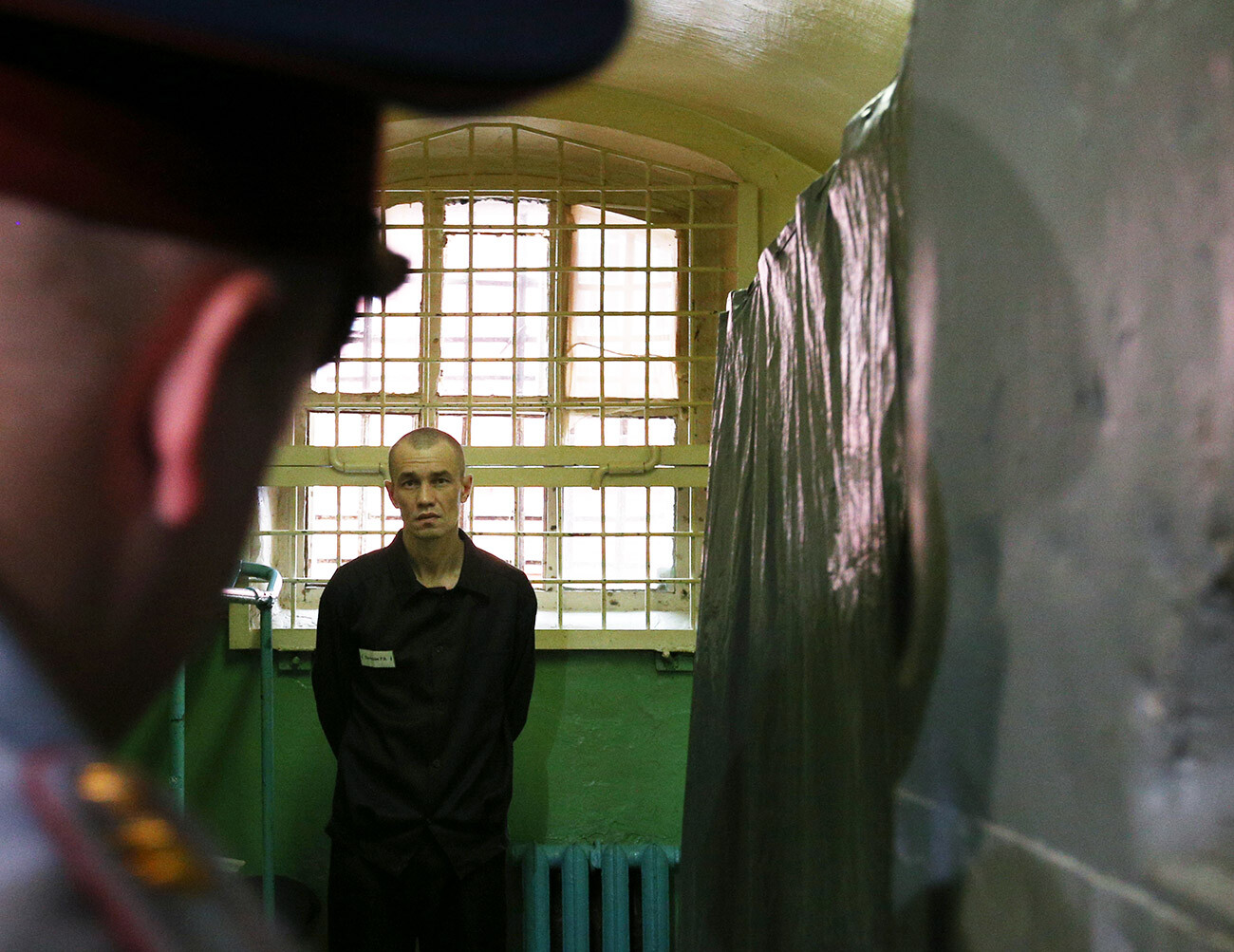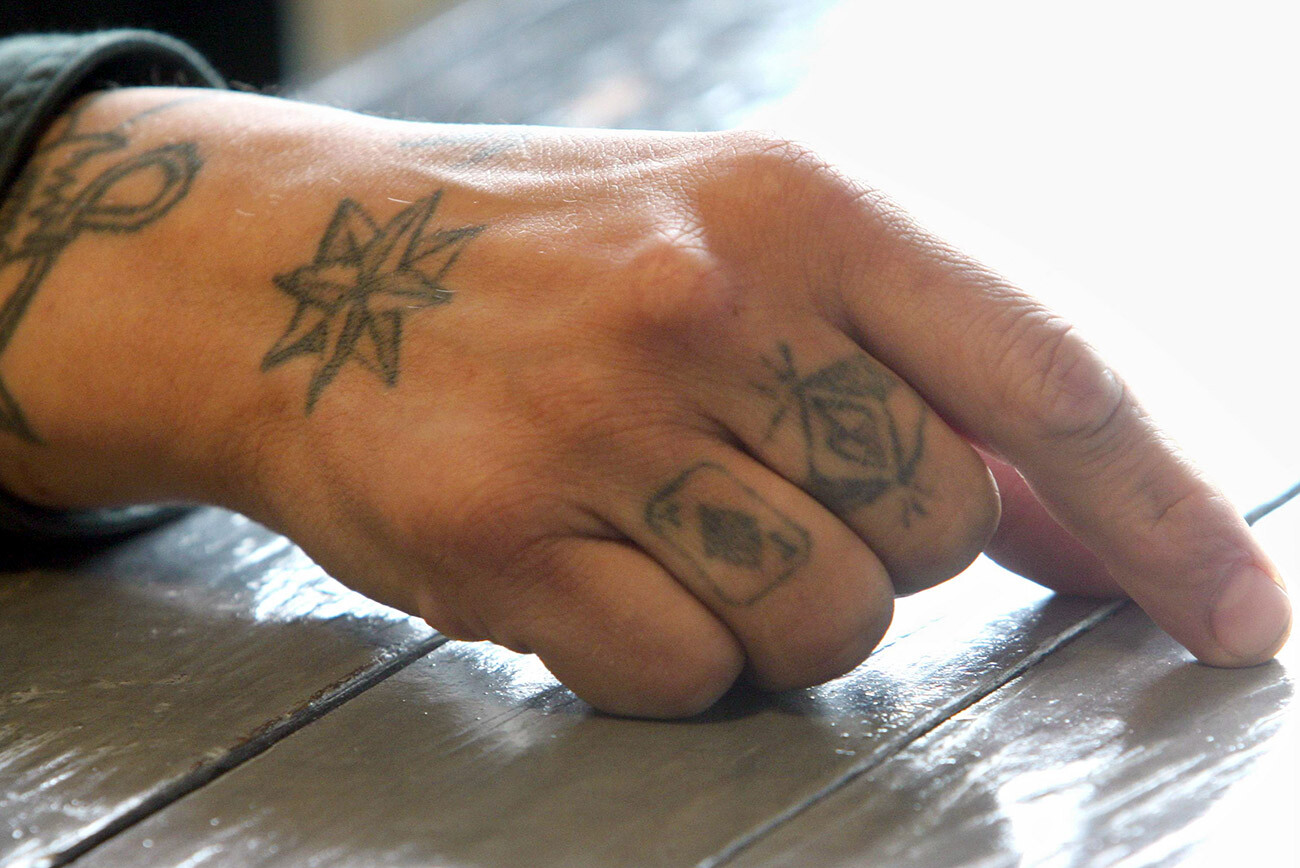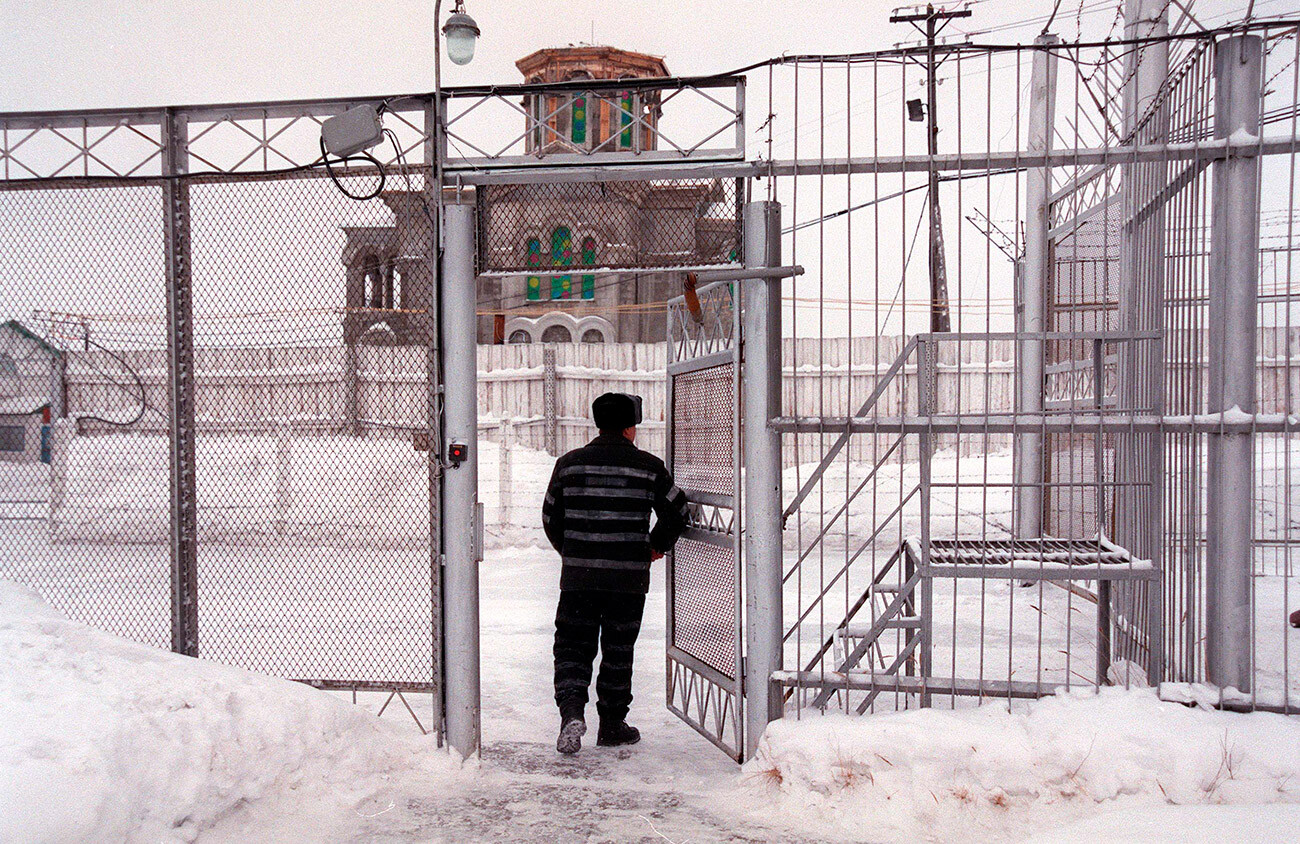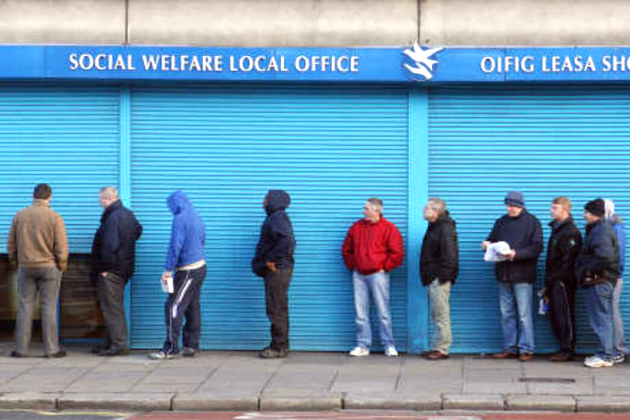6 unwritten rules thieves-in-law NEVER broke
RBTH
13 Jan 2023, 03:25 GMT+10

There was an unwritten, but sacred, code that Russia's violent mafia bosses were obliged to follow to the letter.
Disclaimer: The phenomenon of 'thieves-in-law' still exists today. However, the habits and laws of thieves have changed over time. This article describes the thieves' code of conduct that was developed in the Soviet period - and which is still considered to be the ultimate benchmark.
1. Never cooperate with the state

Prison No. 2 of the Vladimir Region Federal Penitentiary Service.
Stanislav Krasilnikov/TASS
For thieves-in-law, the state was the opposite of freedom and independence. Hence the ban on any form of cooperation with state authorities and public institutions. The ban was probably derived from the idea that a head of the criminal underworld had to be able to make his decisions independently, only guided by the thieves' code of honor and interests of the criminal community and could never succumb to the pressure or orders from anybody, especially the state.
In practice, the total rejection of the state by the thieves-in-law translated into a set of specific prohibitions: never plead guilty to charges, never give any statement to the prosecution, never appear as a witness in court, never pay taxes, never make deals with a prison administration, etc.
2. Never own a house

Inmates of the penal colony.
Valery Sharifulin/TASS
The above-mentioned core principle of the criminal underworld translated into many other related rules and guidelines that thieves-in-law pledged to abide by. Among them was the ban on having expensive property or any other possessions like cars or houses.
According to the criminal code, a thief had to live a modest life and retain a low profile that would not put him on the radar of the authorities. Being a boss of other criminals, he also had to be more concerned with solving the problems of his adherents, rather than with his personal enrichment.
A thief's way of life had to be ascetic to the point that it was prohibited for thieves to be registered at any particular place in the country.
3. Never get married

In the high-security penal colony No. 1 in the settlement of Sosnovka.
Stanislav Krasilnikov/TASS
Neither should thieves-in-law form lasting relations with any woman. Marital relationship was believed to be a luxury reserved for ordinary people. A married person with a family was vulnerable to pressure and thieves had to be immune to this. Also, it is believed that a family would take too much of thieves' valuable time that had to be wholly dedicated to the problems of the criminal underworld.
4. Never turn your back on prison

Vologda prison. Convict serving time in prison.
Vladimir Vyatkin/Sputnik
A would-be criminal had to serve time in jail to earn the privilege of being named a 'thief-in-law'. Even those criminal bosses who had already been crowned as thieves-in-law (the very ceremony takes place in prison) often returned behind bars when it was time to replace another high-profile thief whose term was coming to an end.
This rule ensured that the complex prison hierarchy always remained intact, as the thieves, who were at the top of the prison caste system, maintained control over the inmates. Paradoxically, a thief could never confess to a crime he was charged with, because confession required cooperation with the prosecution.
5. Never work

A prisoner passes through the gates of a prison in Harp on the Yamal peninsula in the far north of Russia in this undated picture.
AP
Thieves could not have any occupation besides fulfilling their responsibilities in the criminal underworld. In penitentiary institutions in Russia, work was considered to be a lowly occupation not suitable for the thieves-in-law. Instead, it was reserved for the most widespread caste in the Russian penal colony system, simply known as 'muzhiki'.
This rule derived from the belief that working for the benefit of someone implied the subordinate position of the worker. When crowned, thieves pledged to only earn by stealing from the rich.
6. Never kill with your own hands

Mob boss Boris Nayfeld poses for a picture at the Russian Baths in the Brooklyn borough of New York, Thursday, Jan. 18, 2018.
AP
It is believed that a legitimate thief-in-law had to exercise his authority without resorting to arms. This implied that his authority was based on respect for fellow criminals and not the mere threat of violence. If the need arose, however, a thief-in-law could always entrust the dirty business to his subordinates.
Click here to read about the Russian prison caste system.
Our website and social media accounts are under threat of being restricted or banned, due to the current circumstances. So, to keep up with our latest content, simply do the following:
- Subscribe to our Telegram channel
- Subscribe to our weekly email newsletter
- Enable push notifications on our website
- Install a VPN service on your computer and/or phone to have access to our website, even if it is blocked in your country
 Share
Share
 Tweet
Tweet
 Share
Share
 Flip
Flip
 Email
Email
Watch latest videos
Subscribe and Follow
Get a daily dose of Irish Sun news through our daily email, its complimentary and keeps you fully up to date with world and business news as well.
News RELEASES
Publish news of your business, community or sports group, personnel appointments, major event and more by submitting a news release to Irish Sun.
More InformationInternational
SectionWorld mobilizes assistance for quake-hit Myanmar
The death toll in Friday's massive earthquake in Myanmar has risen to obver 1,000, and is expected to rise significantly. At least...
US boosts egg imports from Brazil amid bird flu spread
WASHINGTON, D.C.: In response to soaring egg prices and supply shortages driven by a devastating bird flu outbreak, the United States...
Trump pledges more nations will join Abraham Accords
WASHINGTON, D.C.: U.S. President Donald Trump vowed this week that more countries will be added to the Abraham Accords, the series...
Japan’s cherry blossom season officially begins in Tokyo
TOKYO, Japan: This week, Japan's cherry blossom season officially began as experts confirmed the first blooms in Tokyo. A specialist...
67,000 Seek U.S. Refugee Status Under Trump’s White Minority Plan
CAPE TOWN, South Africa: The U.S. Embassy in South Africa said it received a list of over 67,000 people interested in refugee status...
North Carolina court allows suit over teen’s unapproved COVID shot
RALEIGH, North Carolina: North Carolina's highest court has ruled that a mother and her teenage son can pursue a lawsuit over a COVID-19...
Europe
SectionMajority of 25-year-olds in Ireland still live at home, survey finds
DUBLIN, Ireland: A new survey from the Central Statistics Office reveals that most 25-year-olds in Ireland are still living at home,...
Objections delay McDonald's drive-thrus in Ireland
DUBLIN, Ireland: McDonald's expansion drive in Ireland has hit a roadblock as two proposed drive-thru restaurants face appeals from...
Number of arrests over Monday's organised crime bust rises to 6
DUBLIN, Ireland - A sixth person has been taken into custody following Monday's search raids in connection with an ongoing investigation...
Ireland’s Central Bank warns of economic risk from US-EU trade dispute
DUBLIN, Ireland: As tensions rise between the United States and the European Union over potential tariffs, Ireland's Central Bank governor...
Welfare cuts in Ireland hit jobseekers under stricter work mandates
DUBLIN, Ireland: In 2024, thousands of jobseekers saw their welfare payments reduced for not fully engaging with employment support...
Trump promises to protect Greenland from Russia
Another threat faced by the autonomous Danish territory is Chinese expansion, according to the US president US President Donald Trump...













